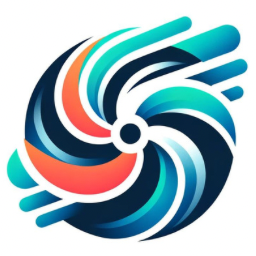In the ever-changing landscape of productivity, 2024 offers a treasure trove of innovative task organization techniques that can revolutionize your approach to managing tasks. As we adapt to hybrid work environments and increasingly digital workflows, staying organized is more crucial than ever. Whether you’re a professional balancing multiple projects, a student juggling coursework, or simply someone looking to enhance your personal productivity, implementing effective task organization techniques can make a world of difference. This guide delves into the most effective strategies and tools for organizing tasks seamlessly in 2024.
Understanding Task Organization
Definition and Significance of Task Organization
Task organization refers to the systematic arrangement and prioritization of tasks to achieve efficiency and productivity. It involves categorizing and scheduling tasks to ensure that resources are used effectively and goals are met systematically.
Evolution of Task Management Over the Years
Task management has evolved significantly over the years. From traditional paper to-do lists and planners to sophisticated digital tools, there has been a tremendous shift in how we organize tasks. Automation, artificial intelligence, and real-time tracking have taken task management to new heights, making it easier to handle complex projects and collaborate with teams.
Benefits of Efficient Task Organization
Effective task management offers numerous advantages. It enhances productivity by ensuring that tasks are prioritized and completed on time. It reduces stress as it provides a clear roadmap of what needs to be done, preventing last-minute chaos. Additionally, it fosters better time management, enabling individuals to allocate their time more wisely and focus on what’s important.
Top Task Organization Tools for 2024
Overview of the Best Digital Tools for Task Management
The digital age has brought forth a plethora of task management tools designed to cater to different needs and preferences. Here are some of the standout tools for 2024:
- Asana: Known for its versatile project management capabilities, Asana provides features like task assignment, project timelines, and integration with other productivity apps.
- Trello: Utilizing a card-based system, Trello allows users to create boards, lists, and cards to visually manage tasks. Its Kanban-style boards are perfect for tracking progress in a visual manner.
- ClickUp: This all-in-one task management tool offers a range of functionalities, from task prioritization to time tracking and collaboration features.
Comparison of Leading Task Management Apps
Each of these leading apps has unique features:
- Asana: Perfect for team collaborations with its robust project timeline view and task dependencies.
- Trello: Ideal for those who prefer a more visual approach to task management.
- ClickUp: Great for individuals and teams looking for comprehensive features in one place.
Features to Look for in Task Organization Tools
When choosing a task management tool, consider features such as user-friendliness, cross-platform compatibility, integration capabilities with other apps, real-time updates, and customization options. These features ensure that the tool can adapt to your work style and enhance productivity.
Proven Techniques to Improve Task Organization
Prioritization Methods
- Eisenhower Matrix: This method helps categorize tasks based on their urgency and importance, enabling you to focus on what truly matters.
- ABC Method: Prioritize tasks by labeling them as A (most important), B (important but not urgent), and C (least important).
Time-Blocking Strategies
Time-blocking involves dividing your day into blocks of time, each dedicated to a specific task or activity. This technique minimizes distractions and enhances focus, making it easier to accomplish tasks efficiently.
The Pomodoro Technique
Break down your work into 25-minute intervals, known as “Pomodoros,” with short breaks in between. This technique boosts productivity by keeping your mind fresh and focused.
Kanban Methodology
Utilize the Kanban board to visualize your tasks through categories such as To Do, In Progress, and Done. This method provides a clear visual workflow, helping manage tasks dynamically.
Setting SMART Goals
SMART (Specific, Measurable, Achievable, Relevant, Time-bound) goals provide a structured approach to task management. Setting SMART goals clarifies your objectives, ensures measurability, and sets realistic timelines.
Integrating Task Organization into Daily Routine
Building a Morning and Evening Routine
Establishing a consistent morning and evening routine can significantly enhance your productivity. Start your day with a clear plan, review priorities, and set daily goals. In the evening, reflect on what you’ve accomplished and prepare for the next day.
Weekly and Monthly Planning Sessions
Weekly and monthly planning sessions provide an overview of long-term goals and upcoming tasks. Use these sessions to review progress, adjust priorities, and set achievable targets for the upcoming weeks and months.
Utilizing Digital Calendars Effectively
Digital calendars are powerful tools for managing time and tasks. Schedule time blocks, set reminders, and sync your calendar across devices to stay on top of your commitments.
Techniques for Habit Formation
Building habits is crucial for consistent task organization. Techniques such as habit stacking, where you link a new habit with an existing one, and using reminders or habit-tracking apps can help reinforce positive behaviors.
Common Challenges in Task Organization and How to Overcome Them
Procrastination and How to Tackle It
Procrastination can be a significant barrier to task management. Overcome it by breaking tasks into smaller, manageable parts, setting deadlines, and using reward systems to motivate completion.
Handling Task Overload
Task overload occurs when you’re overwhelmed by the number of tasks. Prioritize tasks using methods like the Eisenhower Matrix, delegate when possible, and don’t hesitate to say no to additional work that can compromise your productivity.
Managing Distractions
In an era of constant notifications and interruptions, managing distractions is essential. Limit your exposure to distracting environments, use tools like website blockers during focus periods, and schedule distraction-free times for deep work.
Dealing with Unexpected Tasks and Interruptions
Unexpected tasks and interruptions are part of any workday. To handle them, incorporate buffer time in your schedule, be flexible with your task list, and adapt quickly while remaining focused on your priorities.
Conclusion
As we navigate through 2024, mastering task organization techniques can significantly elevate your productivity and efficiency. By leveraging innovative tools and proven strategies, you can manage your tasks more effectively, reduce stress, and achieve your goals. Start implementing these techniques today and witness the transformative impact on your productivity.
Call to Action
Ready to optimize your productivity? Try incorporating these task organization techniques and tools into your daily routine and see the difference. Stay tuned for more tips and updates on the latest in task management and productivity.
Final Review: After ensuring the logical flow and consistency, this comprehensive guide is poised for publication. With varied sentence structures and thorough proofreading, the blog post is engaging, authoritative, and ready to help readers elevate their productivity.

